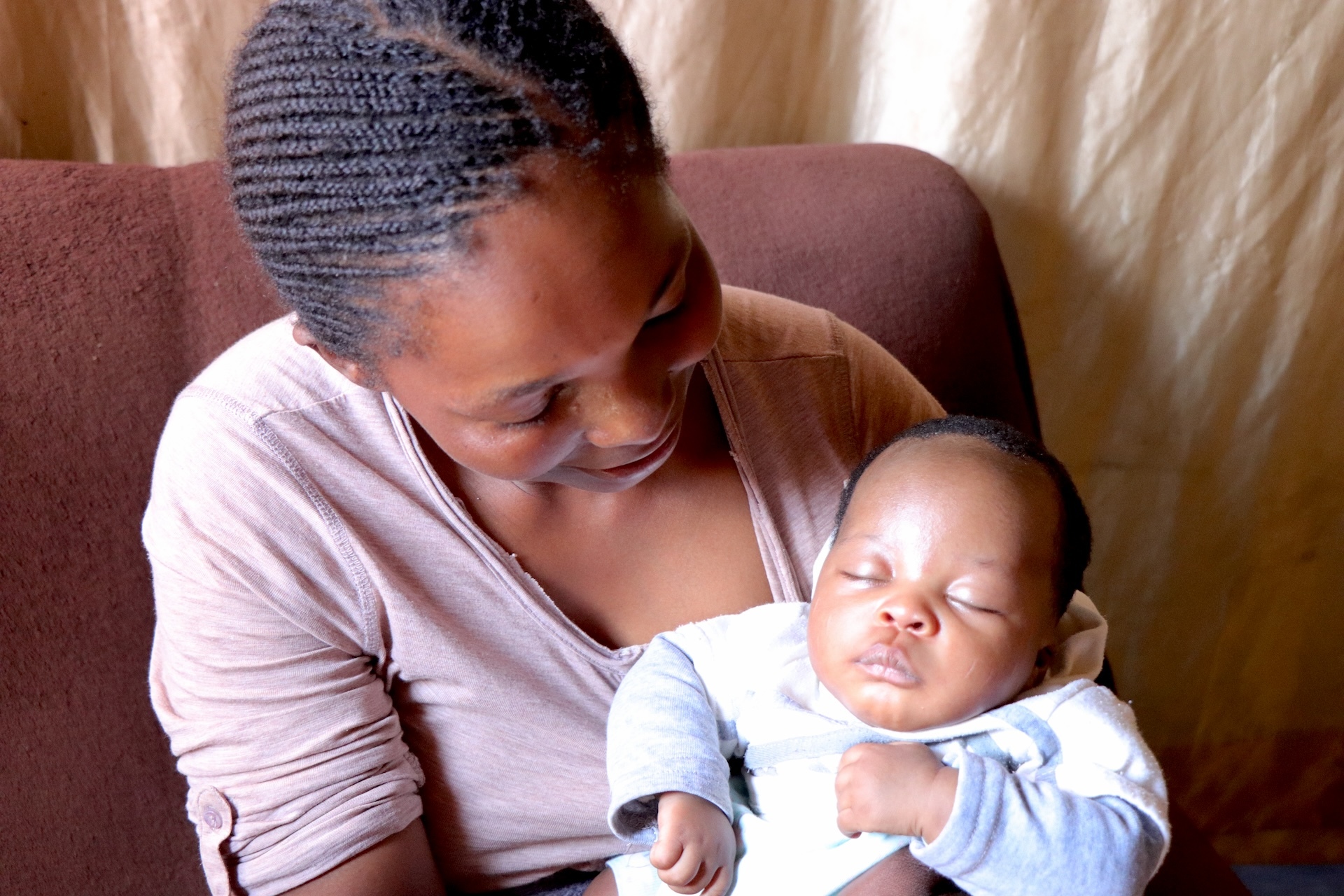
Mercy Norah Ogada is a teen mother supporting pregnant and breastfeeding adolescent girls and young women as they navigate the prevention of mother-to-child HIV transmission (PMTCT), gender-based violence, and sexual and reproductive health services at Miriu Health Centre.
Her greatest strength is how she has turned her lived experience into transformative lessons for other teen mothers in her community.
“My drive for this work is that I was a teen mother myself,” says Mercy. “I gave birth to my son while in high school. Being that young and an orphan, I struggled with disclosure and stigma. This has, however, become my basis of working with the girls. I share my experience with them, and they are able to relate. And I am able to mentor them and link them to care.”
Mercy notes the major contributors to teenage pregnancies are poverty, lack of social support systems that predispose girls to transactional sex, family breakdowns, and curiosity about sex without adequate awareness about pregnancy and sexually transmitted infections. Girls who become pregnant often face further stigma, which can lead to self-harm, adds Mercy.
Mercy is currently mentoring and supporting 290 pregnant and breastfeeding girls and young women aged 10-24 years to access appropriate services from pregnancy screening, enrollment into mother-baby paired services in antenatal and postnatal clinics, including HIV testing and retesting, gender-based violence screening and services, psychosocial support, and health education. Mercy is trained and engaged in providing case management for pregnant and breastfeeding adolescent girls and young women.
“I have received two awards in the last two years,” says Mercy, “one was for saving a teenage girl who got pregnant and thought the only way out was to commit suicide. I was able to intervene and walk with her through antenatal care to safe delivery. I also recently got a certificate for good performance and interactions with adolescents, young girls, and children. I am thankful to EGPAF for giving me the opportunity to interact and share my experiences and ideas through the project and contribute meaningfully.”

Mercy underscores that a lot more needs to be done to support girls, including enhancing school retention and strengthening social support systems. Through this ELMA-funded EGPAF-Girl-POWER Project, EGPAF is working to scale up pediatric HIV testing and treatment, in addition to the retention support services among children and adolescents that Mercy has identified.
EGPAF continues to advocate for increased investment in social determinants of health, such as school retention, efforts to combat gender-based violence, alleviate poverty, and strengthen social support systems.




